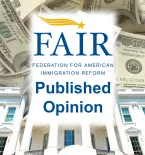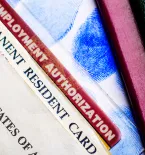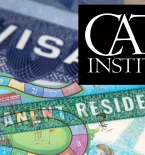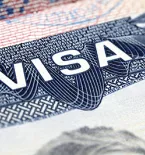
Legal Immigration
At FAIR, we believe that a well thought-out and well-enforced immigration policy plays an important role in helping maintain the quality of life in America.
- In Fiscal Year 2018, there were approximately 1.1 million legal admissions, a small decline from a record 1.8 million admissions in 1991.
- Almost two-thirds of FY 2018 legal admissions were family-based admissions.
- Since 1965, the number of immigrants living in the U.S. has more than quadrupled.
- In 2017, the foreign-born population in the U.S. reached a record high of 44.4 million, which translated to 13.6 percent of the population – the highest percentage of any nation.
There are several avenues for legal immigration to the United States. Among these are immigration for immediate family and family preferred members, employment immigration, and immigration as a refugee or asylee.
At FAIR, we believe that a well thought-out and well-enforced immigration policy plays an important role in helping maintain the quality of life in America. Without common sense limitations on immigration and the resulting population growth, virtually every social cause is a lost cause.
FAIR seeks to reduce overall immigration to a level that is more manageable and which more closely reflects past policy.
Reducing legal immigration from well over one million presently to 300,000 a year over a sustained period will allow America to more sensibly manage its growth, address its environmental needs, and maintain a high quality of life.
In addition, to genuinely improve our immigration system, family-based immigration must be limited to spouses and unmarried minor children of green card holders.
























